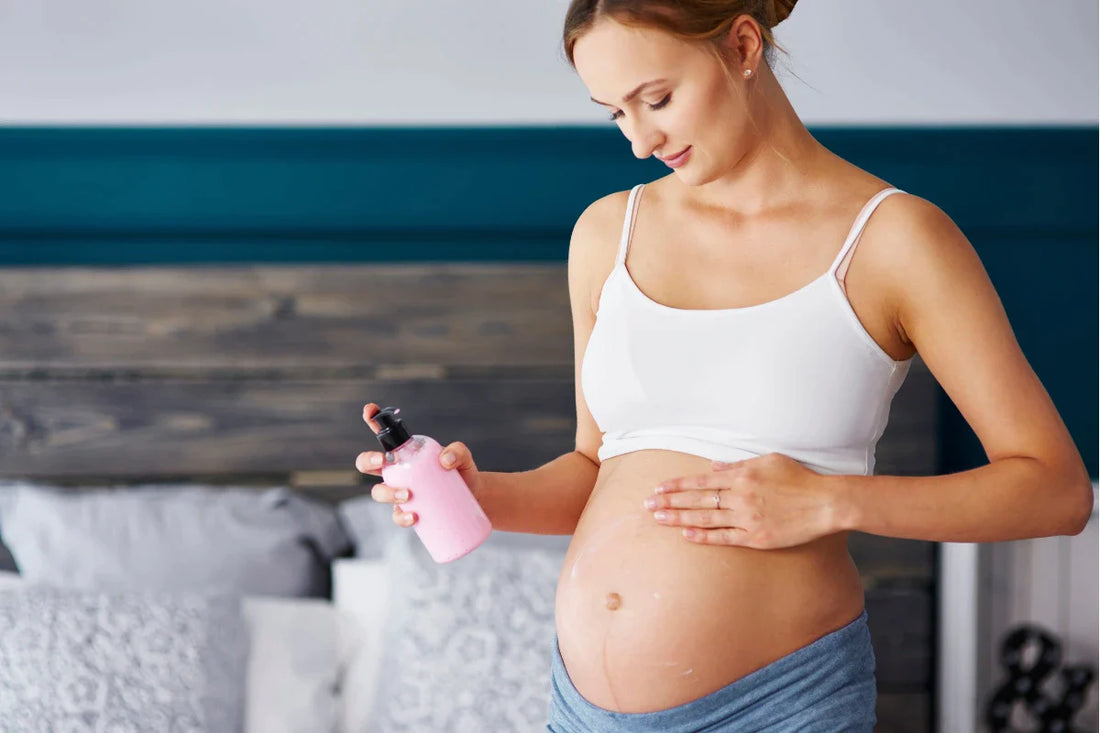During pregnancy, it's essential to be cautious about the skincare products you use. Some ingredients are unsafe for you and your baby. But the question is, which of these ingredients should you avoid during pregnancy? What are the safer alternatives?
Pregnancy is a beautiful journey marked by many changes. Every pregnancy is different. While some women have favorable flawless skin in their nine-month journey, others may encounter changes like acne, dry skin, or darkening of the skin called melasma. Also, some women with pre-existing skin conditions might worsen during pregnancy.
Why is there a need to avoid certain skincare ingredients during pregnancy? We all know that the skin is the body's largest organ and can absorb substances. These substances may go into the bloodstream and affect the developing fetus. If you're pregnant or planning to become pregnant and unsure about the safety of certain skincare ingredients, we recommend consulting with your healthcare provider or a dermatologist.
Here's a general list of some ingredients you should avoid while pregnant.
Retinoids
Retinoids are powerful anti-aging agents and are not recommended during pregnancy as they are linked to birth defects when used in high concentrations. When you consume vitamin A or its derivatives like retinol, these substances can cross the placenta and be taken up by the fetus. It's essential to exercise caution and avoid retinoid-containing products when pregnant to ensure safety. These ingredients are often present in products like anti-wrinkle creams and acne treatments.
Salicylic Acid (In high doses)
Salicylic Acid is often found in acne treatments. Small amounts of salicylic acid are generally safe for pregnant women. Avoid products with high concentrations (like chemical peels) as they are dangerous to your baby.
Hydroquinone
Hydroquinone is a skin-lightening agent often used to treat hyperpigmentation. No proven birth defects associated when using hydroquinone during pregnancy, but this ingredient can absorb high concentrations in the body, so it’s safer to avoid it.
Arbutin
Arbutin is a derivative of hydroquinone, a skin-lightening ingredient often used in skincare products to address skin issues like hyperpigmentation and uneven skin tone. Like hydroquinone, there is limited research on the safety of arbutin during pregnancy, so it’s better to avoid using this ingredient.
Chemical Sunscreens
Some chemical sunscreen ingredients, such as oxybenzone and avobenzone, have been linked to hormone disruption and skin allergies. According to the study, 70% of sunscreen products used oxybenzone, an endocrine-disrupting chemical causing a birth defect called Hirschsprung's Disease which affects the infant’s larger intestine.
Phthalates
Phthalates are used as fragrance stabilizers in skincare products. Phthalates are suspected endocrine disruptors and have been associated with adverse developmental effects. Avoid products that contain perfume.
Some Essential Oils
Some essentials can be specifically harmful during pregnancy. Experts are not sure how they affect both the mother and fetus. Better to avoid using skincare products with oils like rosemary, basil, cinnamon, wormwood, and clary sage.
Benzoyl Peroxide
Benzoyl Peroxide is used in acne treatment products. It kills acne-causing bacteria. While acne can appear or worsen during pregnancy, using benzoyl peroxide in your skincare routine is considered safe by the FDA in smaller amounts. However, it is recommended to consult experts about the products with benzoyl peroxide for safety precautions.
Safe Skincare Alternatives during Pregnancy
Hyaluronic Acid
Hyaluronic acid is a hydrating ingredient that is safe to use during pregnancy. It is a substance naturally found in our tissue to keep our skin moisturized and hydrated.
Niacinamide
Niacinamide, also known as Vitamin B3, is safe for pregnant women and is effective for anti-inflammatory and anti-acne. It controls oil and improves redness caused by breakouts.
Vitamin C
Vitamin C is a powerful antioxidant that brightens the skin. It is a safer alternative to retinoids in treating dark spots during pregnancy.
Pure Culture’s Wild Algae Glow Up Serum has these three ingredients to help brighten dark spots and blemishes and bring out your natural glow. With its 97% natural origin ingredients and 3% Niacinamide, this microbiome-friendly and safe skincare product is ideal for pregnant women to add to their skincare routine.
Natural Oils
Plant-based oils like jojoba oil, virgin coconut oil, avocado oil, and almond oil are safer alternatives to synthetic moisturizers and serums. They provide hydration and nourish the skin without harmful additives.
Our Wild Algae Super Skin Tonic and Wild Algae Quench Cremè are marine-based skincare made of natural oils. Both have dalandan oil and are recommended for pregnant moms who are in their 2nd trimester onwards.
Natural Exfoliants
Ingredients like oatmeal, rice powder, and enzymes offer gentle exfoliation without the risks associated with harsh chemical exfoliants like salicylic acid.
When it comes to skincare, making informed choices about the products you use is crucial. By avoiding potentially harmful ingredients and opting for safer alternatives, pregnant mothers can continue to care for their skin while prioritizing the well-being of their growing child. Always consult a healthcare professional before significantly changing your skincare routine during pregnancy.

